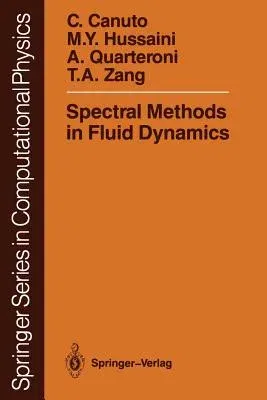This is a book about spectral methods for partial differential
equations: when to use them, how to implement them, and what can be
learned from their of spectral methods has evolved rigorous theory. The
computational side vigorously since the early 1970s, especially in
computationally intensive of the more spectacular applications are
applications in fluid dynamics. Some of the power of these discussed
here, first in general terms as examples of the methods have been
methods and later in great detail after the specifics covered. This book
pays special attention to those algorithmic details which are essential
to successful implementation of spectral methods. The focus is on
algorithms for fluid dynamical problems in transition, turbulence, and
aero- dynamics. This book does not address specific applications in
meteorology, partly because of the lack of experience of the authors in
this field and partly because of the coverage provided by Haltiner and
Williams (1980). The success of spectral methods in practical
computations has led to an increasing interest in their theoretical
aspects, especially since the mid-1970s. Although the theory does not
yet cover the complete spectrum of applications, the analytical
techniques which have been developed in recent years have facilitated
the examination of an increasing number of problems of practical
interest. In this book we present a unified theory of the mathematical
analysis of spectral methods and apply it to many of the algorithms in
current use.


